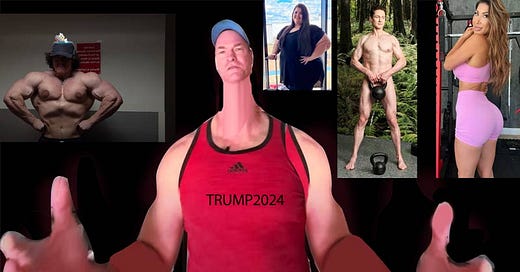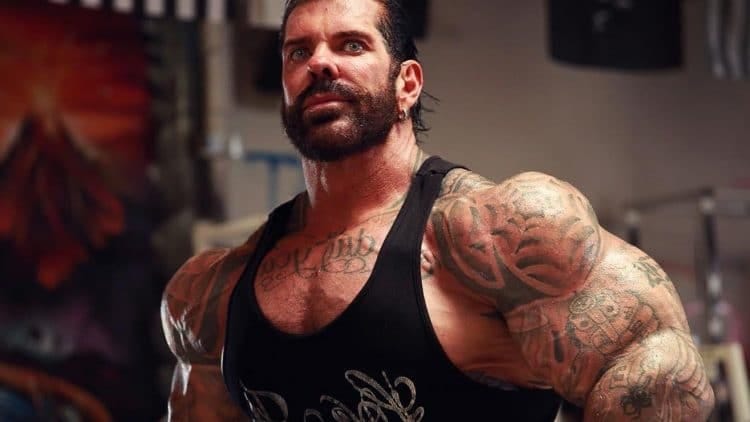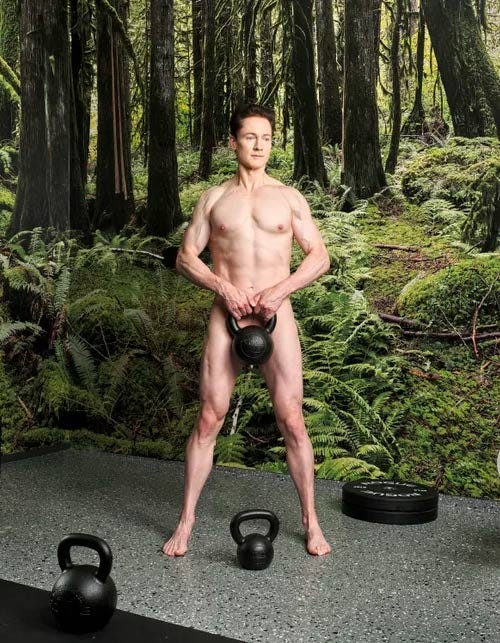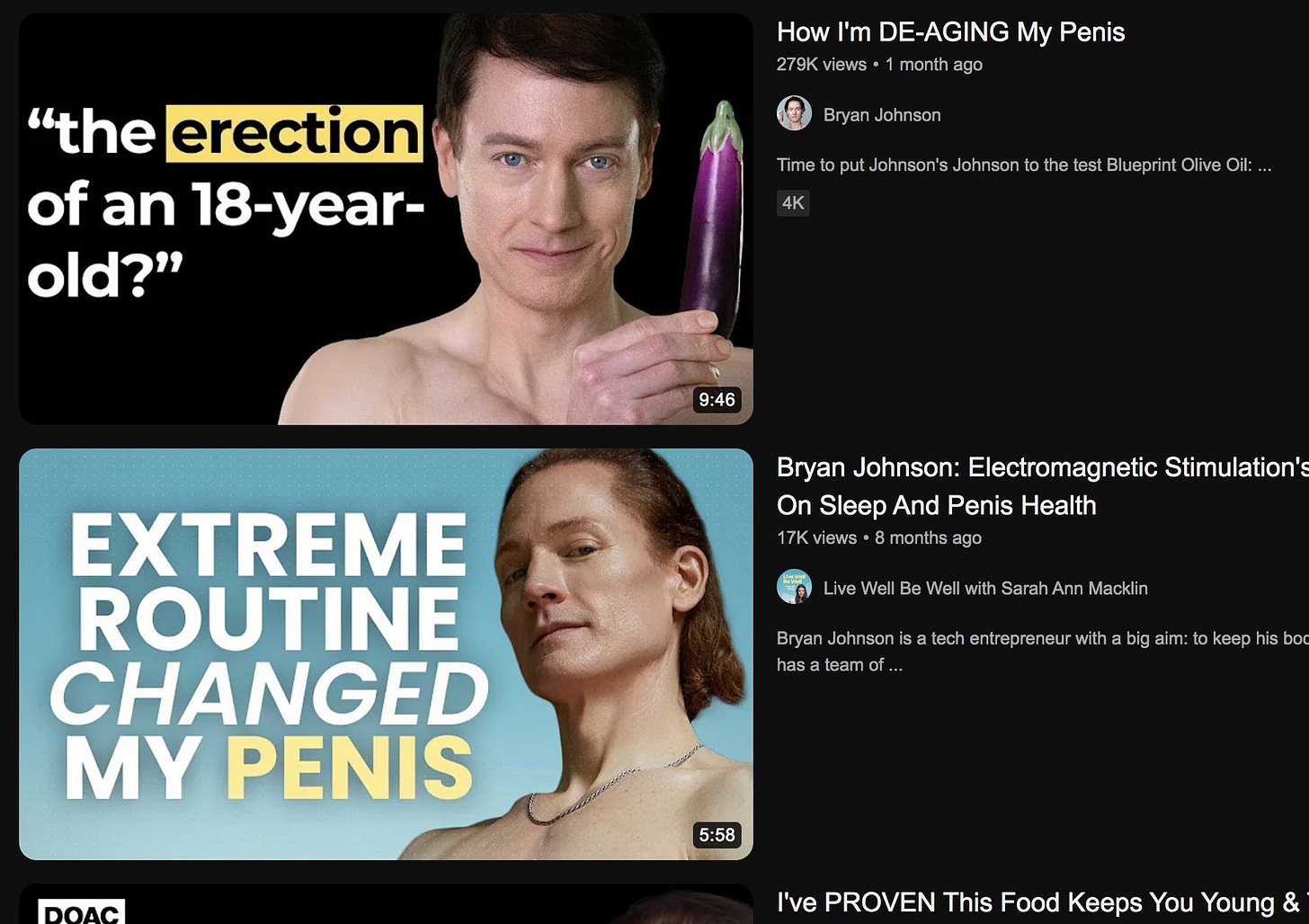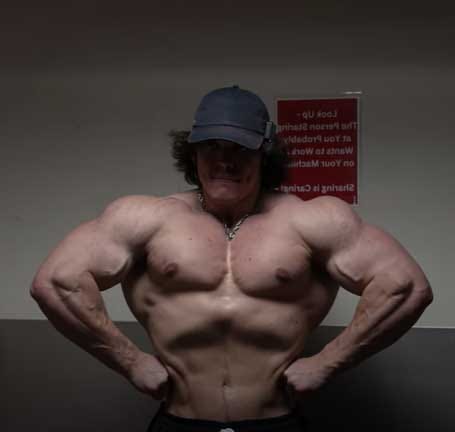Why I Don't Like Health and Fitness Influencers
They were never designed to be online with a following. A healthy society would put barriers around them and their stupid audience
What do we mean by “influencers”?
We mean social media creators who make:
Content that’s either somewhat or a lot, intended to grow their platform at any cost. Growth outpaces credibility or even likability. Content with very low barriers to entry.
Content that’s either somewhat or a lot, intended to shift product. This could be their own (that usually comes later), a sponsor’s or you: i.e they are selling their audience to advertisers.
Content that’s designed to facilitate engagement. Sensational claims, reliant on clickbait/lurid or weird thumbnails/strange subjects/low investment “one weird tricks”. “SCIENCE” or the “TRUTH ABOUT…” are common titles.
Content opining over other content.
Content with a tendency to overstate information —either recycled old information or a new study is given too much weight. Remember: growth first. Some people have made a career presenting old information to a new audience. For most of the biggest influencers this is all they do.
Content with a tendency to pull and advocate strongly in one direction: i.e towards a particular exercise, towards particular drug or supplement use, towards a particular diet, or conversely in the opposite direction against “diet culture” or against that exercise. Specific advocacy, “Do this to…”. This is the explicit influencing bit. Influencers have their own partisan flag they wave for a subject driven by their own experiences. You could say they make content that’s intended to provoke a reaction or bolster a position or tendency in an audience or manufacture a new position for the viewer that’s sympathetic towards their own. The content, whatever it is may be heavily biased.
Content that’s reached a certain tier of audience saturation (enough subs), without which there’s no influencing.
Content that has a tendency to go towards more intimate subjects and images, a tendency for more and more state of undress even if it didn’t start out that way or talking about sexual topics under and an “educational” or “brave” banner. Tendency toward other extremes, risky drug use, extreme diets.
Content that becomes about personas—who without the context set by social media are often not appealing or likable anyway, but not the content itself which is thin.
Content that is often brief and unsatiating.
I don’t follow influencers the same way I don’t drink Coke, Pepsi or go near vape shops, but I can allow some space for those who have one hand on reality still. For example, some of Brad’s content (and Brad doesn’t regard himself as an influencer even though he ticks many of the boxes of these criteria) is good and worth viewing and some is frankly stupid crap designed to make the good content look even better.
Being a doctor Brad can draw on his training and experience to inform the good content, or misuse these to push malformed, weird content.
Unfortunately Brad has opted to ping pong between the two.
Peter Attia, another MD does dabble in some clunky marketing on spam channels from time to time but presents some very good thorough information as well. He is, or has been, weakly something of an influencer I suppose; continual glucose monitoring (controversial) and dabbled with keto, but most of his positions seem sane and reasonable to me. His good work outweighs his influencing, hence he’s not fully an influencer by the above criteria.
Diverging for a moment—but in my view—thinking about number nine on the list—the antecedents of social media started before social media helping to set the stage for what would be social media—as well as glamourising self inflicted surveillance and normalising voyeurism.
Here I’m thinking of that God-awful TV show Big Brother and its spin offs where people were awarded for how cool they appeared relative to others. At the time I didn’t like it.
There will be big winners and big losers in that kind of game. It naturally excludes a huge amount of people. It selects for the wrong things.
My point here is that there were early seeds to simply serve “people” as content or products irrespective of their actual accomplishments before social media itself. Suddenly complete nobodies could accesss a new kind of celebrity, and to some extent authority just for being in front of the camera, not as traditional performers like actors.
I’m not saying that’s influencing itself, but I think it’s an important historical conditioning factor in the lead up to social media. It had already warmed people to the idea.
You can debate this stuff, but perhaps the first big online fitness “influencer”— but who actually started before the massive social media universe we take for granted now—was Zyzz. In his time Zyzz had a relatively big following.
If you read about Zyzz today almost all sources are from 2011—the year he apparently had his own protein brand, clothing line and 52,000 followers on Facebook (which is chump change today compared to even modest influencers).
2011 is also the year Zyzz died in a sauna in Thailand aged 22.
Google Trends is uninformative about this, giving the impression Zyzz didn’t exist until August 2011.
That is incorrect. Zyzz was a thing before he died in August 2011. I can’t remember exactly but I’m pretty sure I remember a buzz around Zyzz 2008-2010 maybe earlier on bodybuilding forums (I didn’t use FB until summer 2010).
But I’m going to say perhaps Zyzz was the first fitness influencer. And you have to remember at that time fitness wasn’t quite the mainstream ubiquitous boring subject it is now. It was before the phase of new industry growth, before the New or Nu Fitness took over (we’ll come on to that topic another time).
Some people might say the first influencer was that stupid Scooby guy on YouTube. But Scooby was lame and no one actually liked Scooby much, but Scooby’s presentation techniques did go on to influence later influencers.
Let’s pick another example.
By 2015 Rich Piana had taken off at the forefront of the bodybuilding marketing game just as the whole thing was going super big, meaning it was stepping outside its prior niche. Rich had a huge following (1.2 million Instagram. 100s of 1000s YouTube.[13] -wikipedia, today his YT is at 1.3 million). You wonder if Zyzz was a template for Rich.
Rich ended up dead too at 46.
And although influencer mortality rates is not what this article is about, it’s worth considering that this is not a rare ending for influencers of all kinds. It sounds ghoulish, but perhaps a close watch should be kept on some of the big names now.
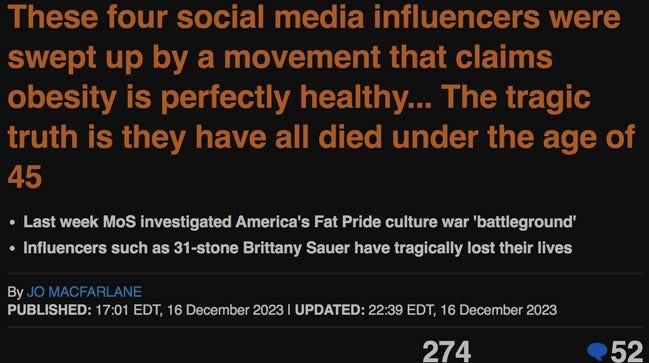
Especially in the health/fitness/wellness sphere—in all its forms; performance enhancing drugs, recreational drugs, experimental new drugs, exposing oneself to unnecessary cosmetic surgeries, extreme diets or extremes of body weight including fat (“body positive”), accidents in the gym or reckless activities outside of it are serious occupational hazzards and these may be concurrent with particular personality traits; high risk, self-centric ego-driven tendencies that the “business” of influencing is selecting for.
Some of these influencers are influencing you towards behaviours that may turn out to be incredibly destructive for them.
Needless to say, risks and extreme lifestyles are maintained for your clicks and attention and without drugs it’s doubtful that Zyzz or Rich would exist at all.
(And for the record although I didn’t care for his content, and will never forgive Rich for mobilising phrases like “killing it” and “crushing it” (🤮), I believe Rich was a cool guy in real life away from the camera).
What I’m trying to say here is I'm a little bit older than the current generation. I've seen it all before.
I didn’t like Big Brother at the time. And while I get Zyzz and Rich were a thing, at what point has one been influenced enough ?
From the audience perspective, never because it’s not really inspiration, it’s just another form of entertainment like Big Brother. It’s a constant trickle of stupid goo content pouring into their minds, sometimes deliberately malformed to extend its reach or steer purchasing decisions towards sponsors, paid subs and upsells.
It’s never enough. It’s never satiating. It’s an addiction. So it always needs more.
A good article on this race to the bottom where content is just enough to stimulate neurotransmitters in addictive patterns but nothing else is Ted Gioa’s “The State of the Culture”.
Bryan Johnson
Let’s have a look now at some current examples—the first two more towards health, anti-aging and biohacking (and then we’ll return to bodybuilding), starting with this strange guy Bryan Johnson—who I now notice is sometimes wearing nail varnish to go with the rest of his androgynous spectral appearance when he isn’t posing naked with kettlebells.
The first thing you notice is Johnson has become a popular SEO subject for other marketers trying to cash in on his traffic, while Johnson himself has obviously invested a significant amount of money in his bizarre publicity like Dave Asprey before him—getting wide coverage in mainstream media as well as in the online world.
Johnson has made his own luxury self investment his marketing angle, but all said it's a rather limited one.
A rich moron spending $2 million a year on his own pampering is not an attractive sight to most people, it's a rather ugly and tasteless one. It’s like watching Tokien’s Gollum fumbling for the ring.
Do we really need to keep this androgynous gargoyle alive another couple of years? Are there better uses for that money ?
I’m very certain as a marketer Johnson knows he’s a rather repulsive figure and can only actually appeal to other repulsive figures, but he can generate a lot of traffic with this own tasteless repulsive factor to shift his line of expensive olive oil, chocolate and useless supplements—much like Asprey, to other repuslive figures.
Johnson couldn’t have existed in Zyzz’s day or Rich’s day as he relies on the milieu of “the Nu Fitness” (which again we will discuss at some point—but it’s illustrated by the kettlebells), the ambiguous “new man” model, transhumanism, the rise of biohacking as a sales model, the increasing hideousness of social media via the intense collapse of marketing into more and more TMI lurid subjects.
And a lot of people may not know that there’s some serious crackpottery in anti-aging circles, it has actually has a religious dimension in some quarters in America.
Shawn Baker
Then there’s Shawn Baker (57), the main influencer behind the carnivore diet.
I have no problem with some of the questions Baker poses about cholesterol, saturated fat, salt and so on.
These are legitimate questions. A lot of people, including people who really should know better, think if you eat too much saturated fat and not enough carbs you will die.
The reality is human nutrition is a complicated and notoriously difficult to study field and you cannot reduce it to anything near that crude. Insomuch as Baker has been a positive counter force on this, wonderful.
Carnivore is a serious choice if someone has autoimmune illness, gut problems or as part of a type 2 diabetes strategy, or if it suits them for weight management.
The question is how does one get that message out ?
I don’t know, but I don't personally want to watch a man eat a giant steak every day and I worry about any guy who would.
When does giving the finger to the corn syrup-eating soy-tards become some other kind of mastubatory display towards the audience itself ? It comes across as weird when it’s all the time, it puts the audience in a weird position in my view.
Of course on the surface Baker seems very different to Johnson, but information, commentary on studies and valid questions Baker brings up tend to be attached to some tastless visual display. There’s a creepiness to the whole thing. And the more wholesome Baker presents himself as, the creepier it gets in my opinion.
No doubt he's a great athlete for his age, and although he’s a big guy—pound for pound he’s probably a better athlete than most people—but who are these videos of a 6'5" 57 year old man in a baseball cap jumping on a high box or dead lifting 405 for 18 reps for?
He’ll label it, “I thought I needed carbs for this”.
If anyone had asked me 14 years ago when I was on keto I could have told them you didn’t need carbs without uploading a video of me jumping around in front of the camera.
Although I have no problem with the promotion and exploration of carnivore itself, contrary to many others, I never adopted Baker as some personal hero of dietary manliness myself, as I never actually got a great vibe from him from where I was.
And there may be a number of other YouTube influencers who are doing something good on the one hand, but if you exclude the “new normal” social media has created, the vibe isn’t that positive. In some cases it's like you're just waiting for them to start jacking off on camera and accidentally upload it to YouTube.
The creepiness is in a lot of places, but it’s often obscured because so much of social media has now normalised creepy, and it’s routinely passed off under the pretense of education.
But it doesn't make it normal. It means creepy people with exhibitionist or odd tendencies, or vulnerable people who think they need to do this to compete in this marketer’s market now find themselves battling for attention on social media and I think some of these more naive people are making errors.
Like Big Brother, social media is selecting for the wrong traits.
Sam Sulek
Let's pick a third example, Sam Sulek, aged 21 apparently.
No idea if it's true, but 100k/month for taking some gear, working out for 20 minutes, eating some MacDonalds and driving home again? DOOOOOOOOOOOOOD
From what I gather Sam Sulek is some kid taking gear at a rather young age at the behest of two Arab gentlemen, who started to trend as a popular topic around a year ago.
Typical comments that surround Sulek are,
"He looks amazing"
"Unbelievable physique"
"Incredible genetics" ←watch this one in particular
with all of these comments attached to,
"but he's going to fuck himself up with steroids".
The first thing I noticed early on was Sulek didn't have a "great" physique or great genetics in the way that’s usually understood.
He probably looks amazing to some people who have never worked out, but in reality his genetics and his genetic response to drugs is quite average.
He looks like a kid would look who takes a few dianabol (even today’s shit stuff) and eats enough to add some muscle. If you put him on stage next to other bodybuilders of his size with better genetics you probably wouldn’t notice him.
I was puzzled over this gap between Sulek and the descriptions of him that didn’t quite match.
But I noticed people were using his name to boost their own traffic, like the reeling loaded Anabolic Doc here, pretending to be “concerned” for this kid with his sanctimonious bullshit. If you really want to protect him, perhaps getting him away from the two Arab gentlemen would be a good idea.
Sulek has acted as a “concern” hook for other marketers, and I wonder if that’s why he was created to begin with. It’s a cash-in on the high risk world of influencing we’ve already talked about.
WHOA DOOOOOOOOOOOD THIS CRAZY KID IS GONNA KILL HIMSELF WITH THE JUICE.
But it’s also possible marketers are forced to buy into the marketing of other marketers. (which is very subtle and deeply baked into the cake now). If someone says Sam Sulek is the next Schwarzenneger it’s “true” in this world of marketing reality because..$$$, although they aren’t quite saying that, but if they were…
And in the year Sulek has been doing this his physique hasn't really changed. It hasn’t gone anywhere, although from some shots it appears the two Arab gentlement up his dose a bit from time to time.
It’s a con. It’s some spam grift created around this guy.
Marketing is that powerful. It can steer you to think some kid taking a few dbols is amazing and that’s he’s about to kill himself too.
One presumes the influencer here isn’t Sulek himself, it’s the two Arab gentlemen who handle him, unless that itself was a clever marketing ploy by Sulek, to make you think he’s being used. Who knows. Anything is possible with marketing.
Coming full circle, Zyzz, Rich ok whatever, but that should have been an end to the experiment. Of course it wasn’t because $$$ and the corporate need to create this mindless social control networks of morons flicking through their glowing screens forever.
Information is fine, inspiration is fine, but the weight of things has long collapsed in some other direction with fitness itself as the topic, and information and inspiration are now a weak disguise to advance creepy and upsells.
A comment I wrote on another one of Ted Gioa’s articles was:
What I also see is a very unhealthy trend with social media normalising dysfunction, exhibitionism, illiteracy, stupidity, hyper-consumerism with any lack of social grace and likability.
Social media is effectively letting the animals out of the zoo.
None of these people were meant to be in front of a camera making videos and having "followings".
Instead of a healthy society constraining them, they have been given a green light to go ahead.
There is strong dysgenic trend with the online information cascade and the people feeding it.
I've picked some topical male examples but things get way worse and more extreme when we look at women, which I’m not going to do in this article, but may do in a future one.
But I will say the combination of social media and mobile phones has been a disaster for women.
Most people would think it’s cruel to make monkeys in a lab smoke cigarettes as part of some experiment to see how it affects their behaviour, but a far worse experiment has been played on women with phones and social media.
As it’s very unlikely I’m ever going to charge for fitness articles if you liked this please:
or send me your bitcoins: bc1qy2gdzdqxeunvex3875kf6nuguvxrvmmhcfyz3k

